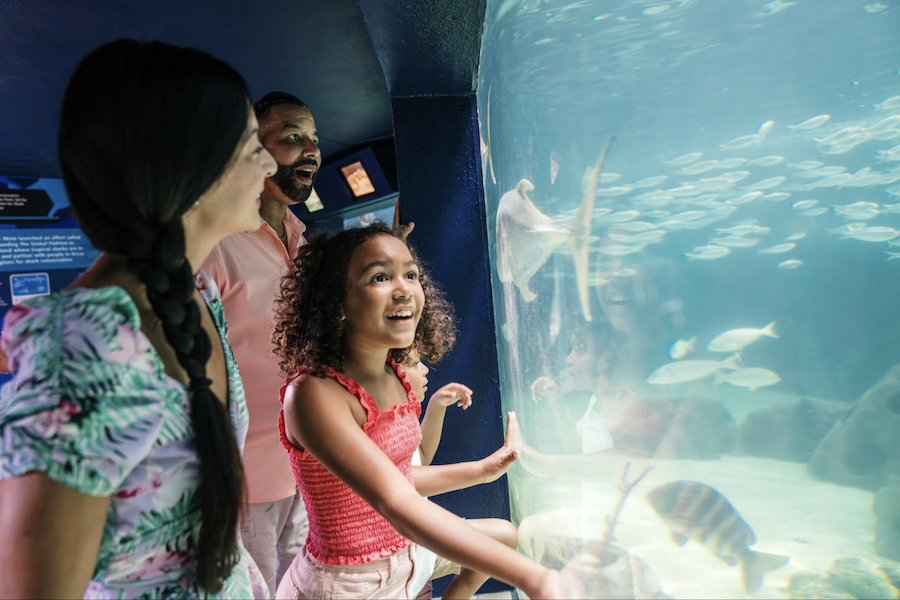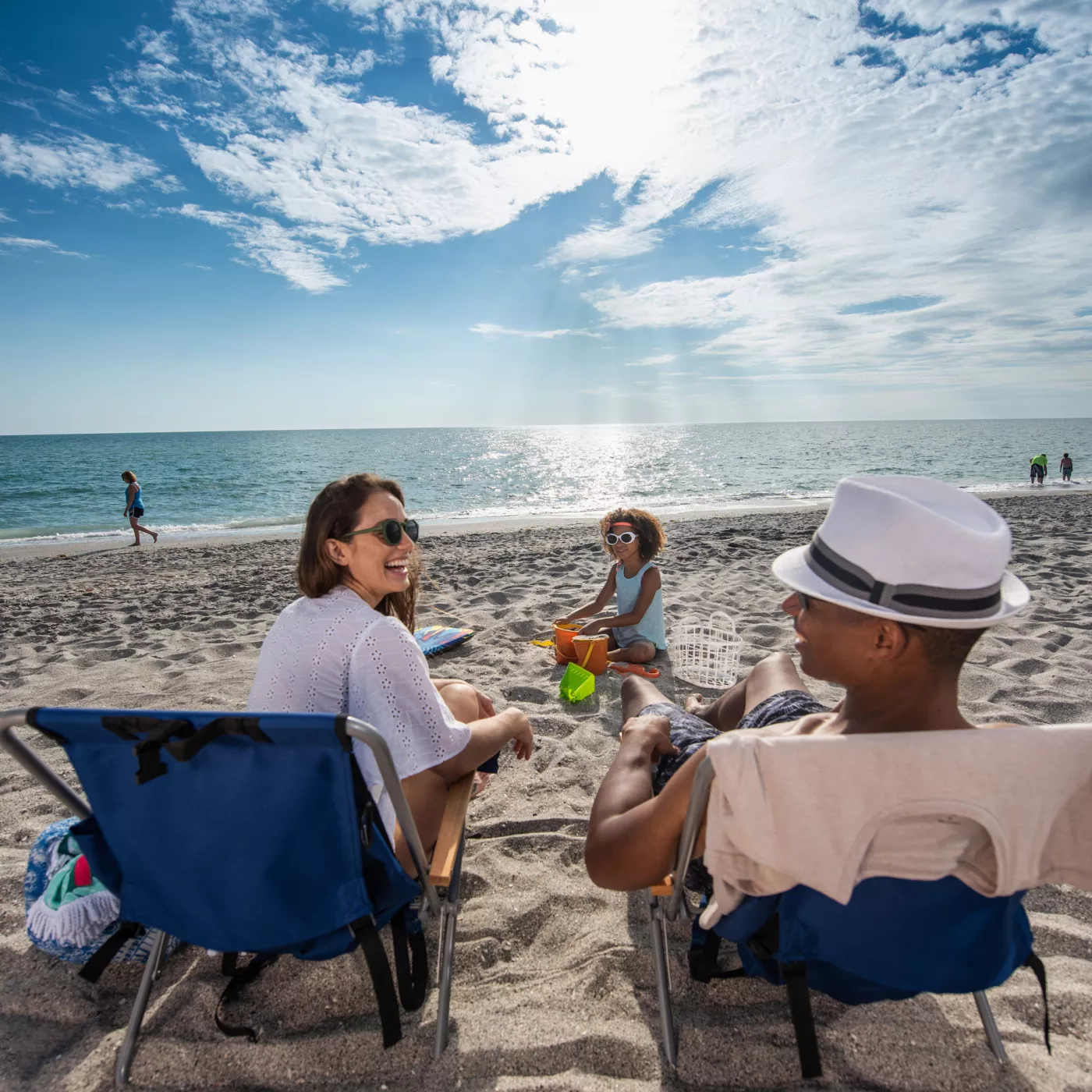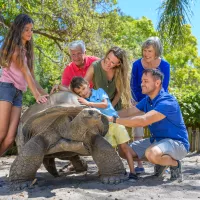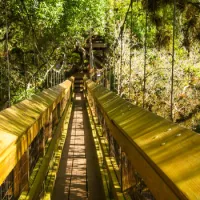Sink Your Teeth into Family-Friendly Shark Spots in Sarasota
If you’ve got a mini–Jacques Cousteau at home, Sarasota County is an ideal place for a family vacation with kiddos who are fascinated by sharks.
Whether you think sharks are misunderstood predators or total undersea villains thanks to movies like Jaws, there’s no denying that they’re fascinating aquatic creatures. In fact, you might have a son or daughter who’s totally obsessed with the toothy fish, in that classic way kids have of forming full-throttle passions.
If you’ve got a mini–Jacques Cousteau at home, Sarasota County is an ideal place for a family vacation with kiddos who are fascinated by sharks. After all, it’s home to the city of Venice, also known as the “Shark Tooth Capital of the World.” The city’s Venice Beach and Caspersen Beach (along with nearby Manasota and Blind Pass Beach in Englewood) are ideal spots to hunt for the tiny, black, fossilized treasures.
Search the Sand (or Streets)
Those teeth shed by prehistoric sharks millions of years ago turned into fossils after being buried under layers of sediment in the Peace River Formation, located in the Gulf of Mexico just offshore those area beaches. Eventually, the fossilized teeth wash up on the shoreline, where they can be scooped up by beachgoers.
Want some help with that? Pick up a “Florida snow shovel” at one of the Venice Main Street shops in the historic downtown that sells beach gear. The contraptions with wire mesh baskets on one end sift the sand as you search, but all it really takes to find shark teeth is a good eye and quick hand.
Families can also search for small bronze shark sculptures that have been installed throughout Venice's historic downtown streets. The interactive public art installation includes examples of 10 different shark species native to local waters, including two extinct species (megalodon and snaggletooth).
If you’re visiting Venice during April, head to the annual Venice Shark’s Tooth Festival, where fossil collectors from across the Southeast United States display and sell their finds. There are also more than 100 artists who sell their work during the festival, along with a variety of food vendors and musical acts.
Take a Bite

Kids of all ages will love eating a meal at Sharky’s on the Pier or its sister restaurant next door, Fin's at Sharkys. Both sit just steps from the sand with a direct view of the Gulf of Mexico and really lean into their namesake themes. Take a post-lunch or -dinner stroll on the newly renovated Venice Fishing Pier and you just might spot something cool swimming in the water.
See Sharks in Action

Once you’ve found your fill of fossilized teeth, head to the brand-new Mote Science Education Aquarium (SEA) in Sarasota to learn more about the kinds of sharks living in the water today. At the aquarium’s newest Shark Zone exhibit, get up-close to different species, including bonnethead, sandbar, nurse, and blacknose sharks. On special days, visitors can watch special narrated shark training sessions (free with regular admission) to learn how Mote cares for its sharks and the training methods used to keep them healthy.
Mote Marine Laboratory’s founding director, Dr. Eugenie Clark, was nicknamed “The Shark Lady,” so it’s not surprising that the aquarium works to teach visitors about the often-feared fish. It’s also home to the only Center for Shark Research recognized by the U.S. Congress, where scientists are exploring the fact that sharks, skates, and rays rarely get cancer and assessing if any findings can be used to help develop new treatments for humans.
Dive Deeper
Families with older kids who are certified to scuba dive can book fossil hunting trips through local outfitters like Venice Dive Center and Aquanutz Shark Tooth Diving Charters. If you’re lucky, you’ll find some coveted megalodon teeth after a guided dive along our Gulf Coast waters!

![Boat parking at The Crow’s Nest in Venice [Photo: Lauren Jackson]](/sites/default/files/styles/popular_stories_teaser/public/2023-import/The-Crow%2527s-Nest-cropped__OPT.jpg.webp?itok=ycs37M-O)




